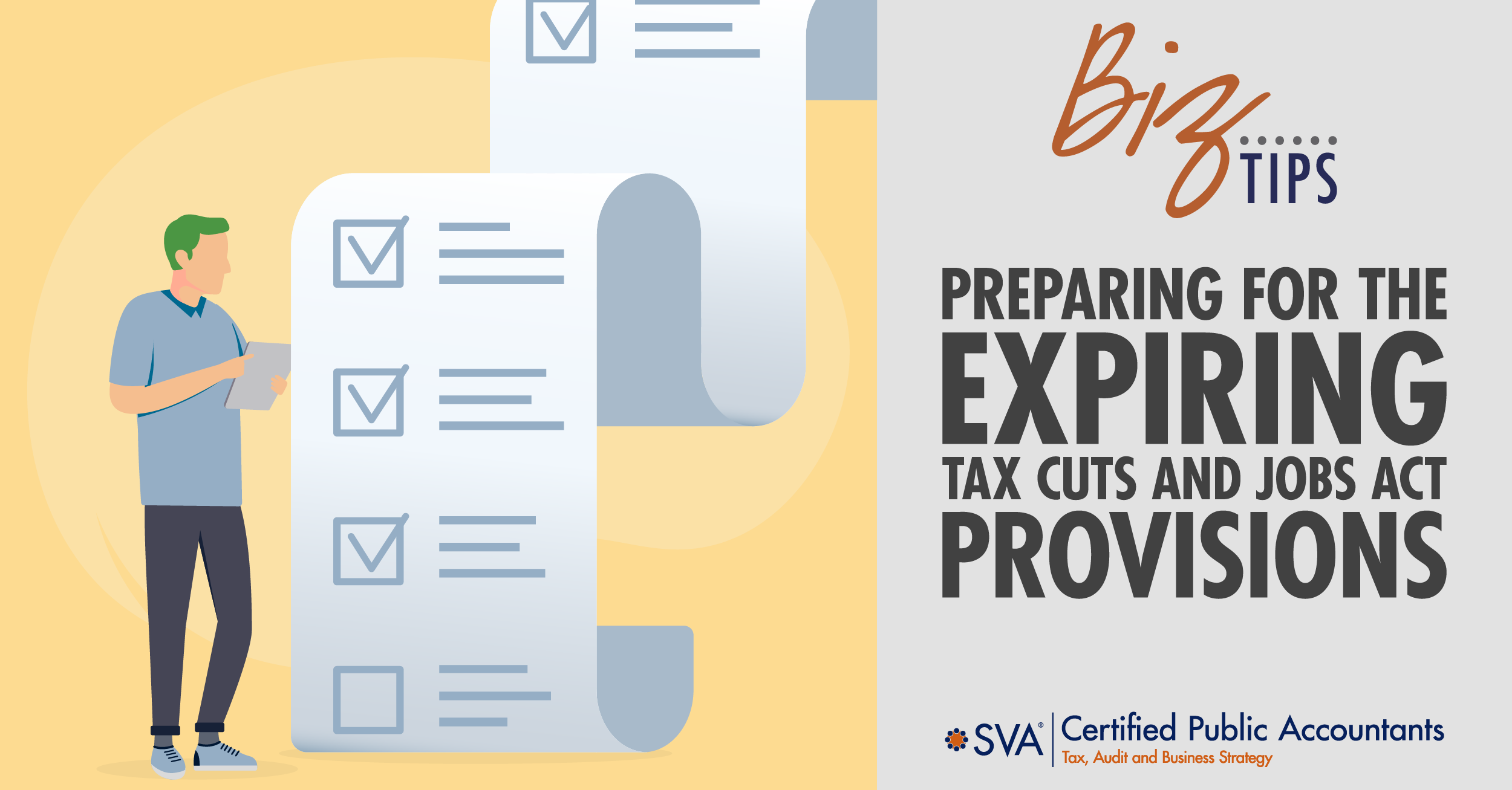| Highlights: |
- The article explains key Tax Cuts and Jobs Act provisions scheduled to expire, affecting individual income taxes, deductions, credits, and business planning.
- It outlines potential impacts on cash flow, tax liability, and long-term financial strategies for individuals and business owners.
- Guidance emphasizes proactive tax planning, scenario analysis, and working with advisors to adjust strategies before expiring provisions take effect.
|
The Tax Cuts and Jobs Act (TCJA), enacted in 2017, was the most significant overhaul of the tax system since the Tax Reform Act of 1986.
Many of the tax-cutting measures included in the TCJA are set to expire at the end of 2025. Congress may act to extend some or all of the provisions, but that is an unknown.
As a dentist/dental practice owner, it is important to be familiar with the changes on the horizon so you can consider potential tax savings strategies in the midst of change.
Potential TCJA Provision Changes
Individual Tax Rates
The individual tax rates reduced by the TCJA will revert to their pre-2018 levels.
The TCJA had lowered tax rates to 10%, 12%, 22%, 24%, 32%, 35%, with the top rate at 37%. These rates are set to sunset December 31, 2025, with the top rate reverting back to 39.6% in 2026.
This change will affect both employed dentists and practice owners and result in increased taxes. Additionally, the nearly doubled standard deduction will return to its lower, pre-TCJA amount, which could increase taxable income for many.
Qualified Business Income (QBI) Deduction
This deduction for pass-through business income has been significant in reducing the effective tax rate on business income for qualified individuals. The 20% deduction covers QBI from passthrough entities, including dental practices structured as S-corporations, partnerships, or sole proprietorships, with some income limitations.
This 20% deduction is scheduled to sunset at the expiration of the TCJA. Once it expires, pass-through business income will be taxed according to individual income tax rates.
Bonus Depreciation on Qualified Property
The TCJA allowed for immediate expensing of certain business investments, such as dental equipment, under Section 179 and bonus depreciation. It also expanded bonus depreciation to apply to purchased or used equipment.
Full expensing under bonus depreciation began to phase out in 2023 and will be completely phased out by the end of 2026. Bonus depreciation will be reduced 20 percentage points each year, so, for example, you could expense 80% of eligible property placed in service in 2023, 60% in 2024, and so on, until fully eliminated.
Dental practices planning to purchase new equipment need to consider the potential advantage of these bonus depreciation deductions before they are no longer an option upon expiration.
Strategic Considerations
Don’t allow yourself to get caught off guard. It’s time to consider tax saving strategies to effectively navigate the upcoming changes.
Accelerate Income, Defer Deductions
Given the impending increase in tax rates, accelerating income into the years before the TCJA provisions expire could be a beneficial solution. This could involve strategies such as billing patients earlier or negotiating contracts so payments are received sooner.
On the other hand, deferring deductions until after the rates increase can maximize the tax benefit of those deductions.
Delay Equipment Purchases
While the current TCJA provisions allow for accelerated expensing of equipment purchases, the phase-out of this benefit means the timing of such investments is important.
It may make sense to delay significant equipment purchases until the provisions phase out. This way, the expenses are deducted at higher future tax rates, providing a larger tax benefit (understanding you may be forgoing bonus depreciation).
Consider Starting a Cash Balance Plan
Establishing a cash balance retirement plan can be a strategic move to maximize tax deferral benefits. These plans allow for substantial contributions, which is especially beneficial for high-income dental practice owners looking to defer more income.
Contributions to a cash balance plan can reduce taxable income significantly, providing both immediate tax savings and future retirement benefits.
Track the Changes
Keeping track of these changes can be complex and time-consuming, but we’re here to help. Contact us to learn more about how we can work together so your practice is prepared when these tax provisions are set to expire.

© 2024 SVA Certified Public Accountants

